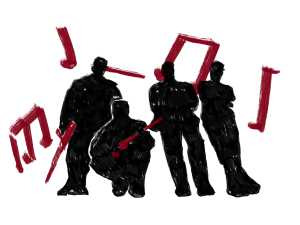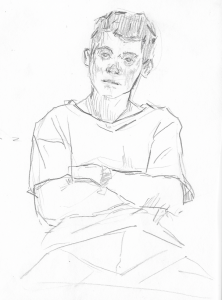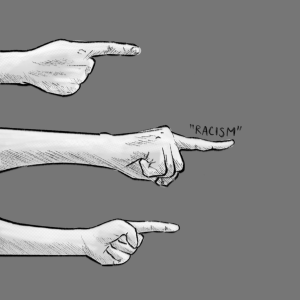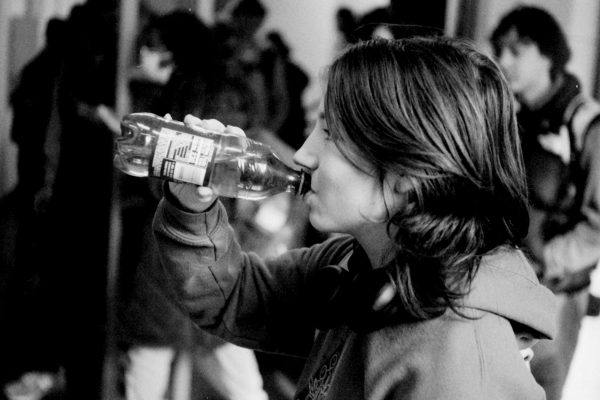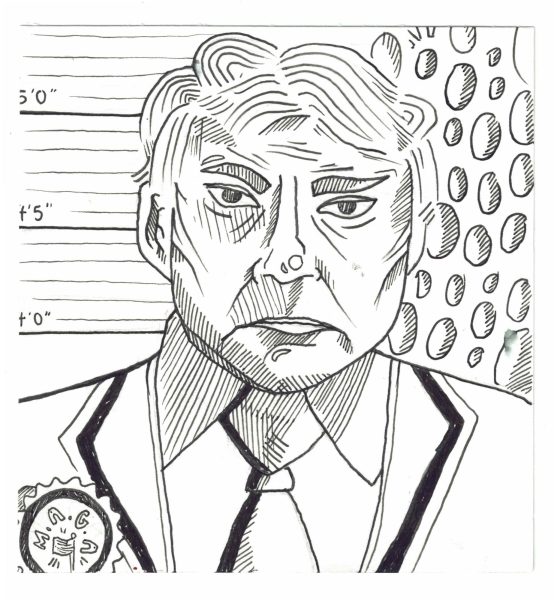Netflix’s “Love Hard” is a Step Back for Asian Representation
December 1, 2021
Rating: 1/5 Falcons
Love Hard, a Netflix film released on November 5, 2021, tells the story of Natalie (Nina Dobrev), a writer who struggles with her dating life. She sets off from Los Angeles to surprise her Tinder match on the east coast, Tag (Darren Barnett), only to find out she’s been catfished by Tag’s friend Josh (Jimmy Yang).
Love Hard’s love story is eerily similar to other recent Netflix films that center catfishing as the main component of their story, as well as other twisted themes of acceptance. They use the repetitive story arc of a character needing to catch a catfish in order to conquer their love interest, turning the plot into a messy, abnormal friendship story.
Natalie continuing to lie about herself to appeal to Tag, the same way that Josh pretended to be Tag, reveals a recurring theme in the movie: everyone has components of a catfisher, and that everyone has a revealing secret about themselves. In the movie, the two main protagonists struggle with their own identities, and ultimately turn out being someone they are not. From the cliche plot found in many other films to the unrealistic storytelling that strangely portrays sympathetic attitude towards catfishers, this film unsuccessfully attempts to show a theme of self-acceptance with the monotonous tone throughout the movie.
After its release, the film received criticism of the usage of Asian-American stereotypes. The catfisher, an Asian man, has to disguise himself as a white-passing person in order to find a love interest. This is an exhausting trend in characters of color in Hollywood, that without proximity to whiteness, they are not deemed as conventionally attractive. Asian men have long been emasculated and deemed undesirable.
Hopefully the backlash … serves as a learning point for the future of Hollywood.
It is not a coincidence that Netflix casted an Asian man to play the role who fits into these harmful stereotypes of being desexualized, nerdy, and unattractive. Love Hard ignorantly ignores the implications this stereotype leads to and this immediately lowers the bar for the rest of the film.
Hollywood perpetuating harmful depictions of Asian men is not uncommon and is rooted in history. An example of this was when Love Hard diminishes and paints the Asian protagonist’s love arc as a joke, only being able to find a match with his old English teacher, which directly builds onto the desexualization of Asian men.
Harry Shum Jr., who plays the brother of Josh, touches on this subject in an interview with NBC saying, “I’ve also gotten faced with a lot of stereotypical roles. For me, it’s always trying to flip it and trying to say, ‘OK, well, if this is what you are going to give me, then I’m going to alter as much as I can.’” Shum has lived up to his statement by shunning stereotypes and showing that Asian men can be the main love interest in multiple films.
Although Love Hard is a very unexciting, predictable film that takes a step in the wrong direction for Asian representation in Western media, hopefully the backlash the film received serves as a learning point for the future of Hollywood.
This piece also appears in our November 2021 print edition.



